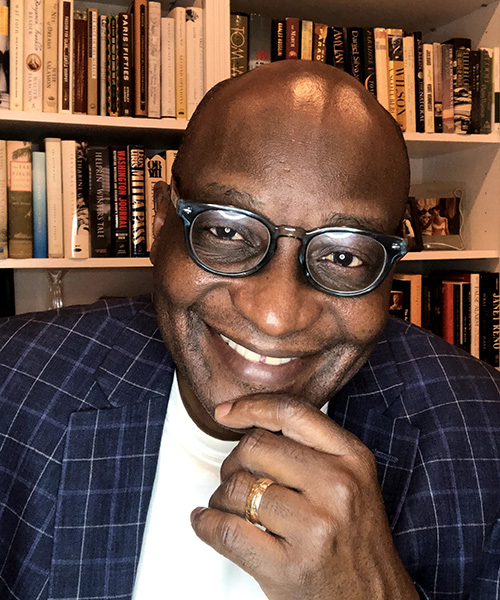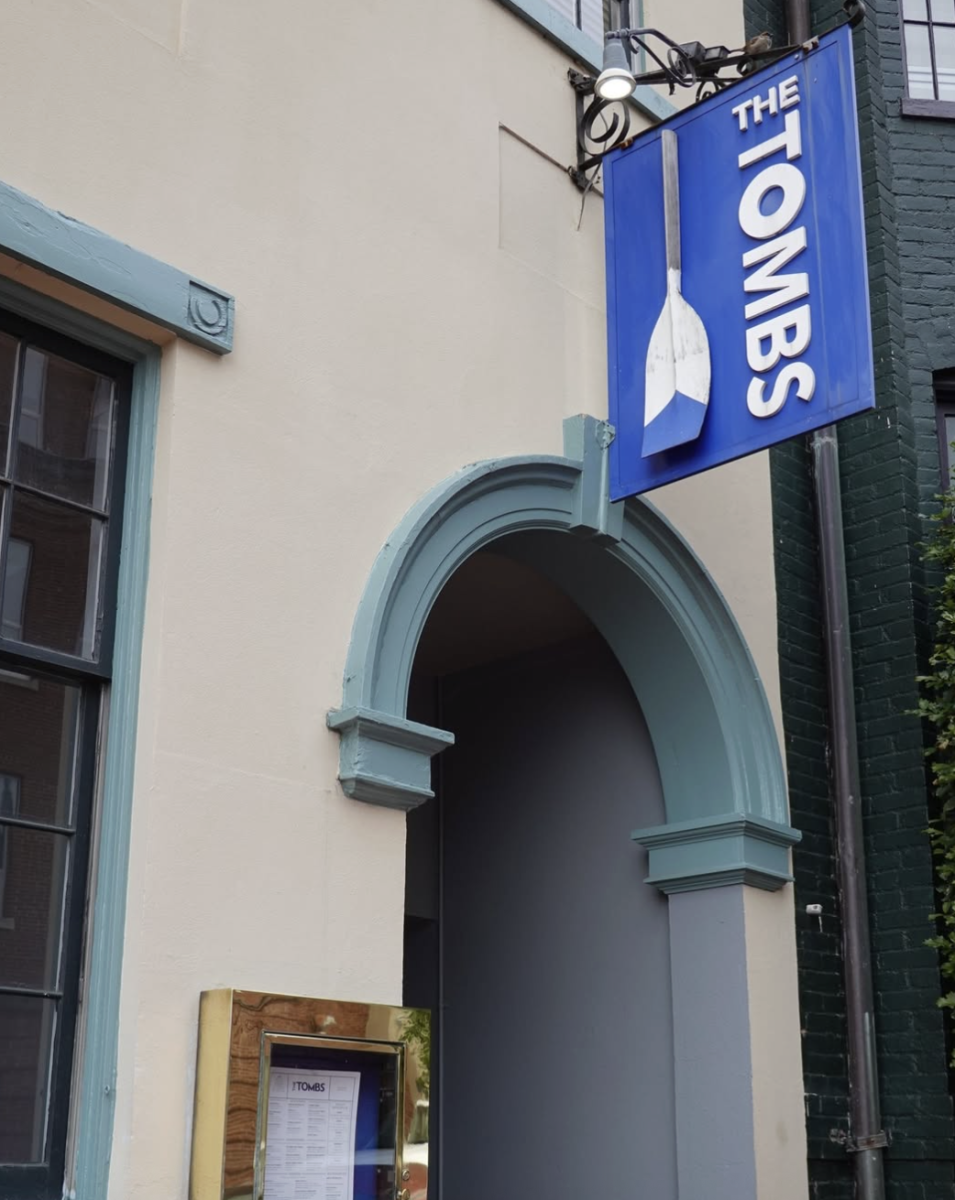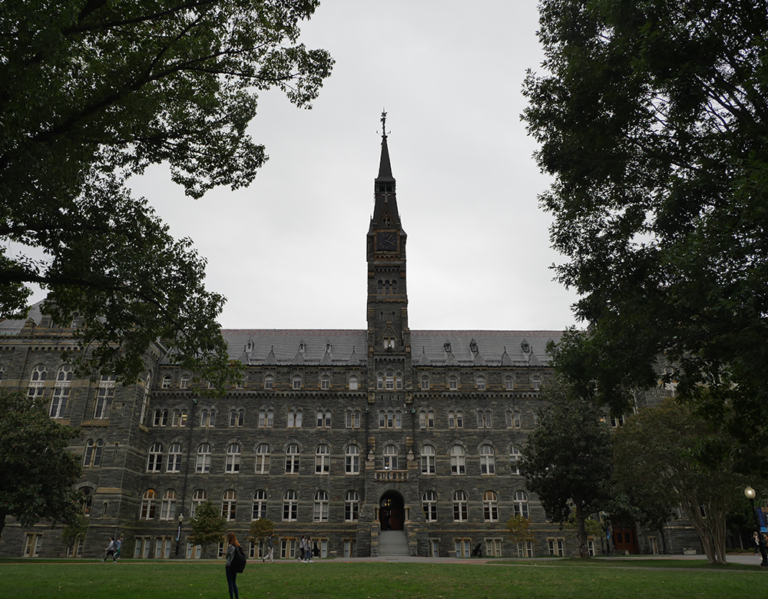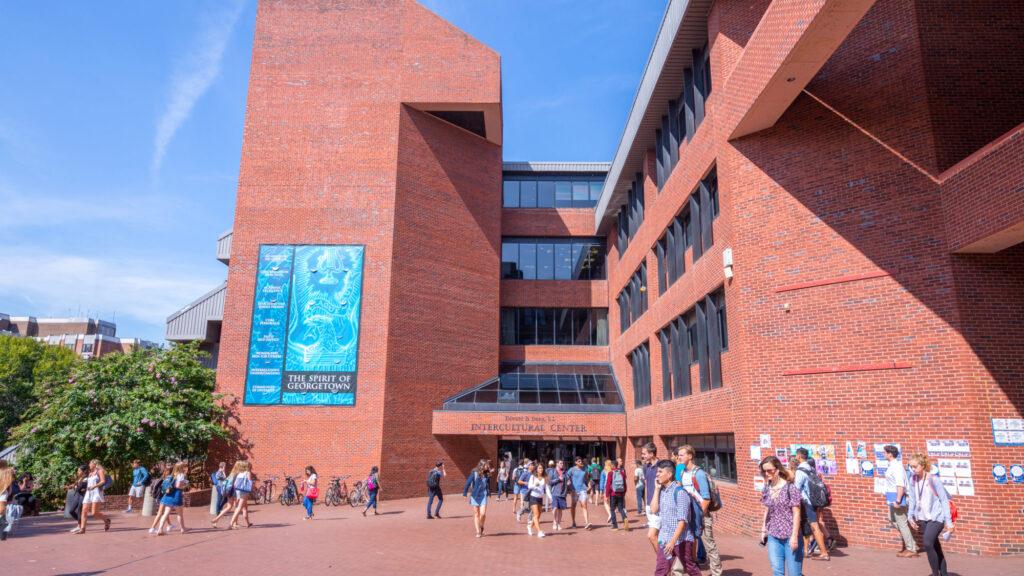Three anthropology students received the Stapleton Award, a $2,500 research grant from the department of anthropology, the university announced Sept. 9.
The award honors Scott M. Stapleton (SFS ’05), a Georgetown graduate who died in a traffic accident in 2010; Frank and Pam Stapleton, Scott Stapleton’s parents, gifted the anthropology department funds to support students in their son’s discipline after his death. This year’s recipients, Kami Steffenauer (CAS ’26), Lauren Keohan (CAS ’24) and Leah Cundiff (CAS ’26), will use the funds to pursue independent research, unpaid research or other professional experience in the field of anthropology
Sylvia Önder, a teaching professor of Turkish and anthropology in the College of Arts & Sciences who assisted Cundiff with her proposal for the award, said the award honors Stapleton’s interest in anthropology by funding undergraduate research.
“Because Scott had so loved the mentoring he got from Professor Susan Terrio (now retired) in anthropology and ethnographic research, he had planned a Ph.D. in anthropology at the London School of Economics,” Önder wrote to The Hoya. “The Stapleton family wanted to support other undergraduate students so that they could pursue whatever research topics they wished, with the mentorship of faculty in anthropology.”
The three winners learned of their selection during finals week last semester and were able to use the grant money to begin their research over the summer and write reports as they continue their studies.
Steffenauer, whose project explores the impact of rurality and kinship on her family’s migration from Switzerland to the United States, said her family was excited to hear she had received the award.
“My project has to do with my family history, so my family was also very, very excited about it and so excited to be part of this,” Steffenauer told The Hoya. “It was a very much familial, communal celebration when we found out that I had received it.”
Cundiff used her funding to study death culture in New York City, specifically looking at “death doulas,” nonmedical professionals who provide end-of-life care. Cundiff said she hopes others can gain an understanding from her ongoing research about the different ways people handle death across cultures.
“When I was speaking to Professor Önder about my initial proposal, we kind of were touching base on how death is very much a taboo topic in some cultures, how there’s a standardized way of doing death that’s kind of imposed within the United States as opposed to South America, or someone that immigrated here, or someone that is second generation,” Cundiff told The Hoya. “What death means is different to different communities, just the exploration of that.”
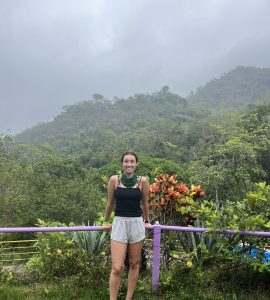
Keohan used the grant money to travel to Puerto Vallarta, Mexico, and research the effects of tourism on the local ecology and culture. She said her research considers the impact of vacations on local communities.
“I think that understanding the way that humans and the environment are interconnected, and how we’re interdependent on each other is something that can be applicable in all different facets of all different disciplines,” Keohan told The Hoya. “And so something as simple as going on vacation, which is something that people in the United States, especially, most have the privilege to be able to do, diving into what the impacts are of your actions. Even just going and supporting a hotel chain on a beach in Mexico, what is that actually doing to the local population, their culture, in the local ecosystems and nature?”
Cundiff said that receiving the award has been gratifying for her.
“It means being more a part of the Georgetown community,” Cundiff said. “Being acknowledged as a student and as someone that, you know, has something to say, has some value to add to the academic community, in a way that I never really kind of considered.”
Keohan advised students to look out for similar opportunities.
“I don’t think a lot of Georgetown students, or students in general, think that there are these types of opportunities out there,” Keohan said. “I didn’t even know that the Stapleton grant existed until I just went to a meeting and learned about some of my peers that were doing cool stuff, and I was just so bewildered that they have these really cool opportunities.”
“You never know that you might have a life changing experience where you would never think it’s possible, but you won’t know unless you try and really try to fight for those opportunities,” Keohan added.





